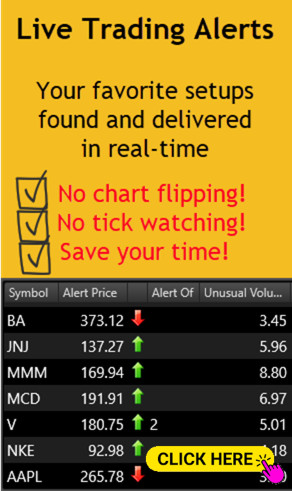In the days of yore, there were fur traders, spice traders, and textile traders, amongst others. These days, you’re more likely to run into a day trader, swing trader, or scalp trader. The question is: do you know how to distinguish between these different types of traders? If not, have no fear! Today we’re looking at swing trading vs. scalp trading. We’ll compare some of their pros and cons, giving you a glimpse into the world of investing. And if you’re interested in trading, this quick analysis might help you decide which type of trading best suits your personality and talents. Swing trading vs. scalp trading: let’s get started!
Swing Trading vs. Scalp Trading

Swing Trading vs. Scalp Trading
First, let’s discuss the very basics of swing trading and scalp trading.
Swing trading involves holding an asset for at least one day (but up to several days), hoping to profit from price swings. The timeframe is longer than a day trader but shorter than a long-term investor, so a fair amount of patience is necessary for success.
Scalp trading, on the other hand, is a method of trading in which investors attempt to make numerous profits on small price changes. Scalpers work quickly, and sometimes trades are made within minutes (or even seconds) of each other! It’s quick and demands high energy, so if you have trouble concentrating on one task at a time or often find yourself caught up in daydreams, you might struggle with scalping.
If you’re debating swing trading vs. scalp trading, decide whether you want to make many tiny steps or one large leap with your investments. Which action best suits your trading style? Swing trading requires more patience and confidence. Although swing traders make fewer trades, their trades yield greater profits. Scalp trading requires more action and speed, as well as a belief that it’s easier to catch small gains than large ones. Although they make a lot of trades, scalpers yield smaller profits from each individual trade.
When you enter the world of investing, you don’t have to choose a style of trading and stick with it. If you’re interested in both swing trading and scalp trading, why not master both techniques? With the unpredictability of the market, it’s smart to have multiple strategies under your belt. But if you’re determined to choose between swing trading vs. scalp trading, consider the speed at which you want to make trades and the amount of patience you have regarding your trades. If you like high speed and struggle with patience, go for scalping. If you prefer a more relaxed speed and you have great patience, go for swing trading. Good luck!
Swing traders, you’re in the right place! If you’re interested in mastering some simple but effective swing trading strategies, check out Hit & Run Candlesticks. Our methods are simple, yet powerful. We look for stocks positioned to make an unusually large percentage move, using high percentage profit patterns as well as powerful Japanese Candlesticks. Click here to learn more about our services, receive private online coaching, sign up for a membership, and enter the live trading room.





3 Comments to “Swing Trading vs. Scalp Trading”
Have been day trading for about 8 months and recently moved away from the latest/greatest indicator and have been concentrating on reading the tape/candle sticks. Always looking for more information, setups and techniques around candlesticks.
So How much does swing traders earn? I’m new to trading, but for me, scalping works perfectly based on my style. I have been practicing on a demo account, and with good moves, it is possible to earn $5k to $15k a day every day for the whole month depending on the lot size, the pips involved, the number of trades, high volatility markets, risk management etc. I’ve had some losses too esp when I first started practicing, but over time, you will develop skills and strategies. So I wonder how much do swing traders earn?? I’m curious, please enlighten me and give me an idea. I might become interested in doing higher time frame executions in the future since you mentioned they offer higher returns. How much do swing traders earn on a monthly basis? I’d appreciate your response.
I’m afraid there is no such thing as one answer to “how much can a swing trader make?” It’s all a function of their risk tolerance, position sizes, trading style, market conditions, discipline, bandwidth (how many open positions they can manage effectively), etc. It sounds to me like you are happy and successful with scalping volatile tickers in high-volatility markets. If this is the case, my advice is for you to stop looking for greener pastures. If your “$5k to $15k every day” returns are true AND are a reasonable percentage return on the capital employed, just do more of it…don’t chase a lottery ticket when you have a very good job. The idea behind swing trading is that you can have more positions and you don’t have to watch every tick of the chart. Yes, you can make a great living as a swing trader, but it’s a lifestyle thing…not a get-rich-quick scheme. Anyway, that is my 2 cents.
Leave a Reply